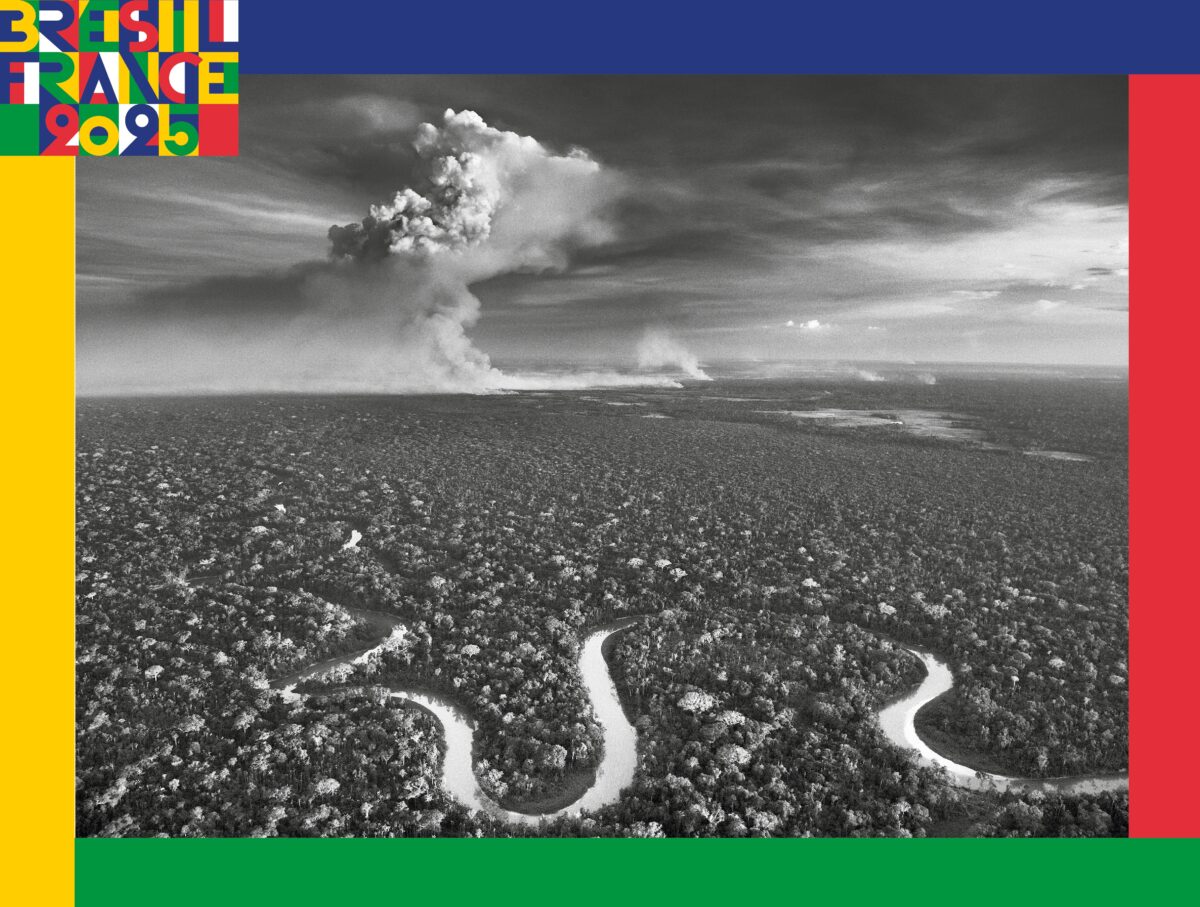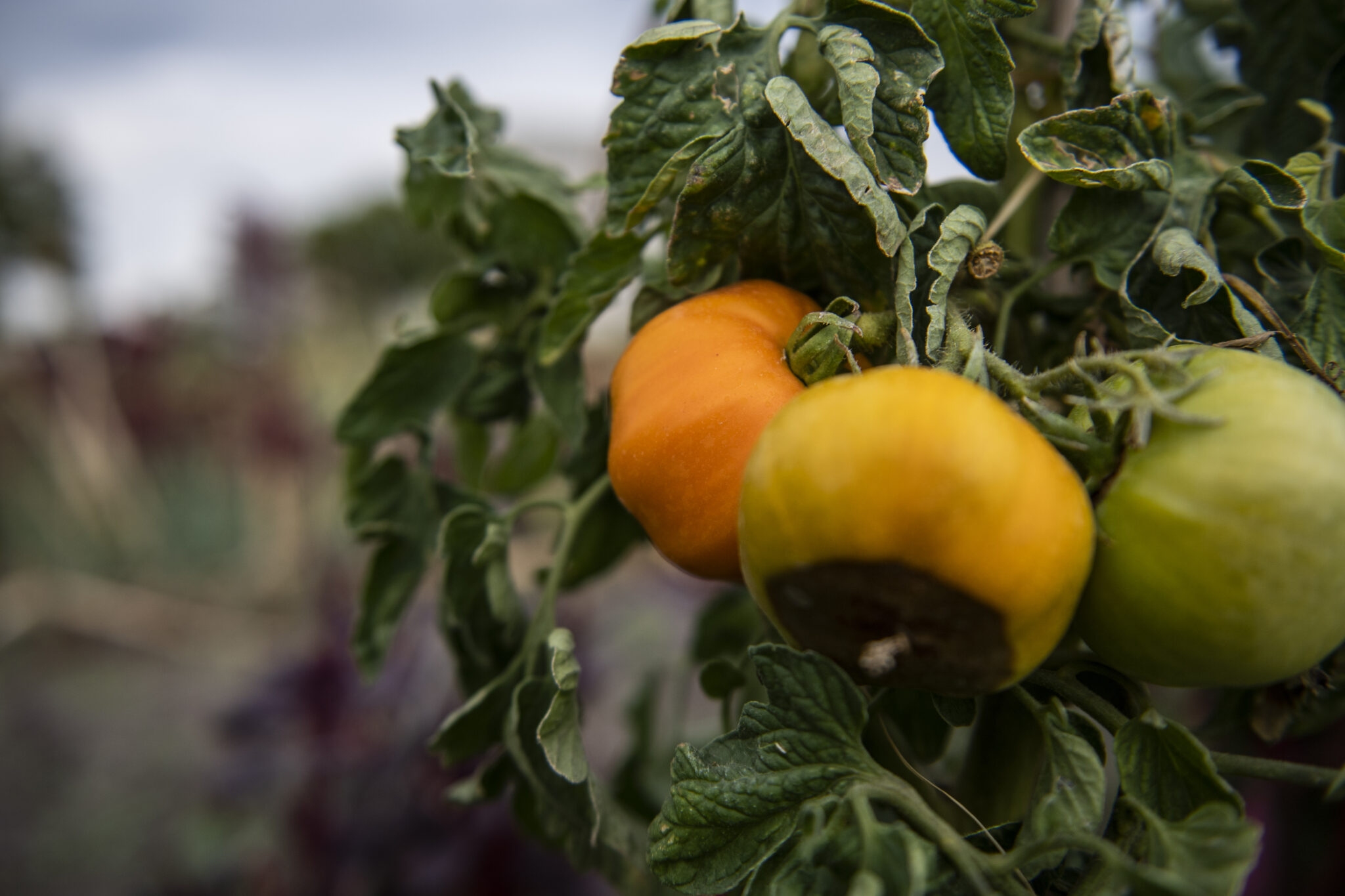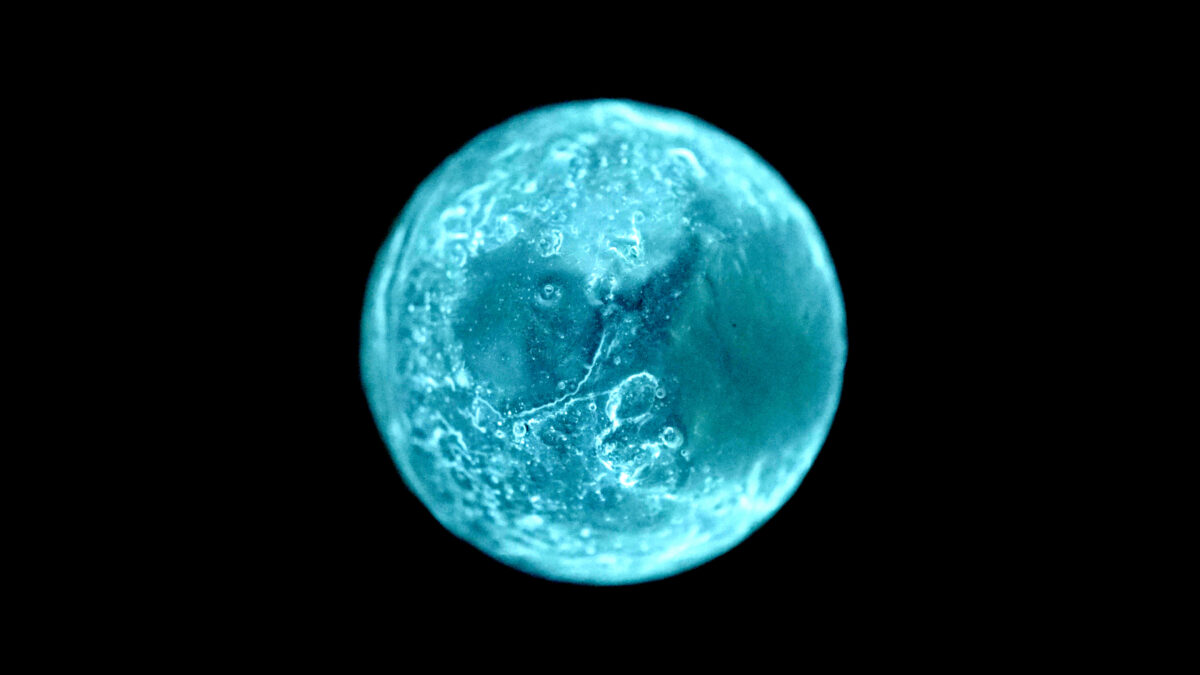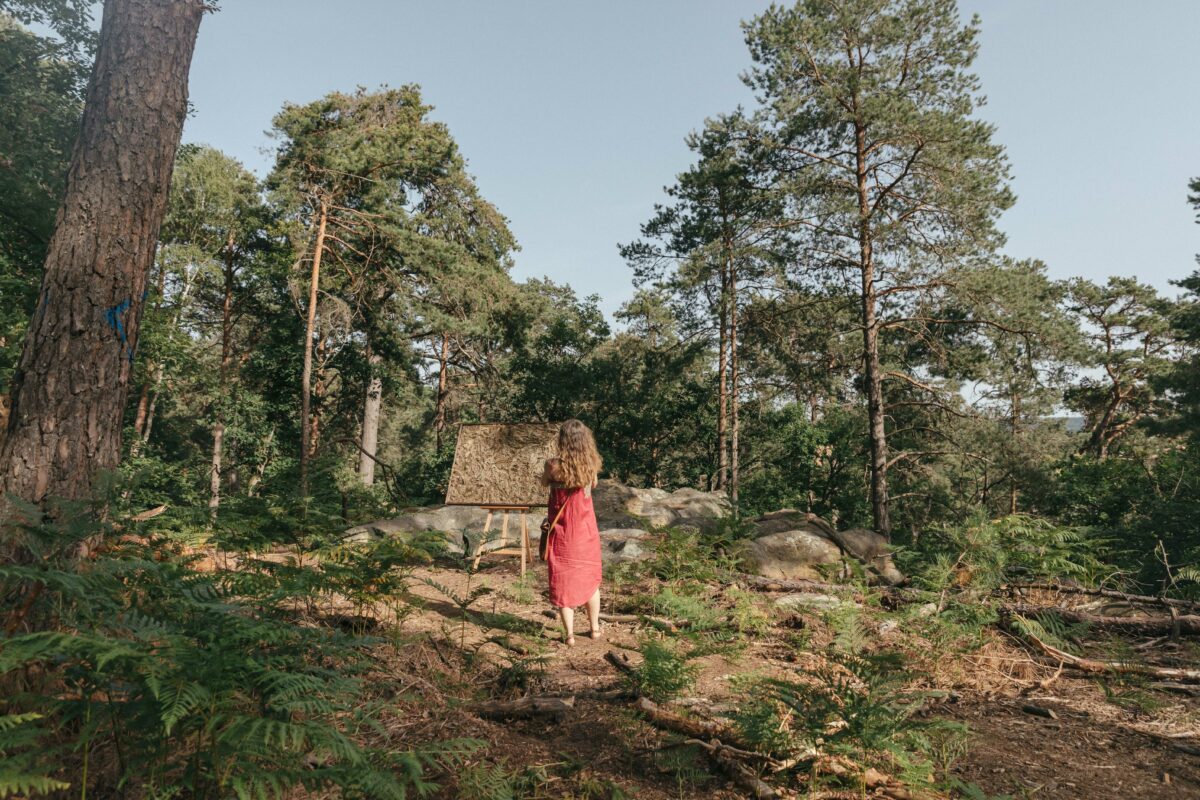
Forest Nights at the Jardin d’Agronomie Tropicale
As part of the France-Brazil Cultural Season, the Nuits des forêts festival at the Jardin d’Agronomie Tropicale takes us on…

On the occasion of our event, Nouvelles Gastronomies : Arts, Food and Ecological Territories at the Cité Internationale des Arts, La Table et le Territoire brought together artist-farmers, experts, researchers and bearers of artistic initiatives to share the cultural solutions that artists can bring today to transform food territories and imagine the sustainable food of tomorrow. Watch our discussions in streaming.
Image credits: Table et le Territoire, festival 1 septembre 2020 © Anne-Emmanuelle Thion
Published on 8 December 2021
Throughout the day, round tables around the issues of the program La Table et le Territoire bring together artists, farmers, experts, researchers and holders of artistic initiatives dealing with the issue of food and the transition of territories from all over Europe: when food becomes art and art, food for the transformation of territories.
Inaugural conference
From the world of art to agriculture
Edouard de Laubrie: In charge of collections and research, Edouard de Laubrie is also responsible for the “agriculture” collection center of the Museum of Civilizations of Europe and the Mediterranean (MuCEM).
Nathalie Blanc: She is Director of Research at the Centre national de la recherche scientifique (CNRS) and Director of the Centre for Earth Policies. She was director of the UMR CNRS LADYSS (2014-2019) and is based at the University of Paris. A pioneer of ecocriticism in France, she has published and coordinated research programs in areas such as nature in the city, environmental aesthetics and environmental mobilizations. A founding member of the French Humanities Environment Portal, she was also, from 2011 to 2015, the French delegate for the COST European research network “Investigating cultural sustainability” and is now the delegate for the COST European program on new materialisms “How Matter Matters” (2016-2019). His recent research projects include CAPADAPT Supporting adaptation to climate change through citizen capacity building (ADEME-GICC 2017-2020) and CIVIC ACT on the intersections between socio-environmental inequalities and collective mobilizations at the scale of Greater Paris (Université de Paris-Sciences Po). She has published several books, including: Les animaux et la ville, O. Jacob, 2000; Vers une esthétique environnementale, Quae, 2008; Ecoplasties. Art and the Environment, Manuella, 2010, most recently Form, art, and environment: engaging in sustainability, published by Routledge in 2016. Nathalie Blanc leads and coordinates a project of the LAB ArtSciences Le Laboratoire de la Culture Durable devoted successively to the urban soils of the Anthropocene (SOLS FICTIONS) and to sustainable food (La Table et le Territoire) which gives rise to writing and exhibition experiments.
Round Table 1
The metamorphoses and hybridizations of art and food in the territories
Marina Pirot: Artist-researcher engaged in landscape practices and gestural knowledge, creates modules of perceptive experiences referring to somatic and choreographic techniques that are activated in selected fields of research, in collaboration with different partners. Curator of exhibitions and founder of artist residencies for the past few years, she is currently conducting theoretical and practical research on the aesthetic transition in light of ecological changes. She practices and studies artistic devices involving intercorporeality and somatic practices.
Dominique Leroy : Sound artist and designer of collaborative projects, Dominique Leroy lives in Nantes and works in the landscapes of different “sentinel territories” (Loire estuary, Alpine nature parks, Czech countryside, Californian permaculture centers…). In 2016, he co-founded (n) with Marina Pirot with whom he explores the vibratory qualities of landscapes through an approach that combines sound and somatic practices. He has previously participated in numerous research residencies and exhibitions, and contributed to many collective projects. CYCLO-FARM was initiated by Dominique Leroy and Marina Pirot within the Collectif (n) in 2020. Both are now artists associated with the project and lead the creative process that involves many members, contributors, experts, and not so experts, resident artists at Kerminy. CYCLO-FARM implements landscape experiments and agricultural techniques based on collective work in a network and on multidisciplinary methods at the crossroads of agriculture, art, architecture, landscape, life sciences, human and social sciences and engineering sciences.
Fernando Garcia Dory: He is an artist whose work specifically engages with the relationship between culture and nature, as it manifests itself in multiple contexts, from the landscape and the rural, to desires and expectations in relation to identity. Interested in the harmonic complexity of biological forms and processes, his work focuses on connections and cooperation, from micro-organisms to social systems, and from traditional art languages to drawing to collaborative agro-ecological projects and actions. He has developed projects and presented his work at the Tensta Konsthalle, the Van Abbe Museum, the Reina Sofia Museum, dOCUMENTA 12 and the Biennials of Gwangju, Istanbul and Athens. He is the founder of INLAND CAMPO ADENTR, a project that studies the role of territories, geopolitics, culture and identity in the city-country relationship of present-day Spain. Its objective is to implement a three-year cultural strategy (2010-2013) to support rural living through an international conference, artistic productions in a residency program, an exhibition and a publication.
Jean-Philip Lucas: He works on various cultural projects in the Paris region, specializing in transitional urban planning and the development of cultural third places, with the company ANCOATS of which he is a managing partner. Jean-Philip joined Olivier Darné at Parti Poetique in December 2016 as development manager. He works in particular on fundraising, administrative and production follow-up as well as the coordination of Zone Sensible’s activities.
Ségolène Darly: Lecturer in geography at the University of Paris VIII, Ségolène Darly specializes in urban agriculture, landscapes and the representation of nature in cities. She works on the integration of agricultural spaces in urban planning and urban control for the relocation of agri-food systems as well as in conflicts of use and territorial constructions. Ségolène Darly is also a member of LADYSS, and is involved in the collective for the defense of food-producing land in the ZAD of Saint-Denis.
Clara Breteau: She holds a PhD in Geography and Cultural Studies from the University of Leeds (UK). Winner of the AHRC Whiterose doctoral fellowship, her thesis, co-supervised by Nathalie Blanc, Nigel Saint and Claire Lozier, investigates the poetic dimension of a set of self-sustaining ecological habitats. A graduate of the universities of Cambridge (UK) and the Sorbonne, she currently teaches as a lecturer in art and ecology at the Laboratoire de biologie des organismes et écosystèmes aquatiques.
Round Table 2
Art and science: a possible alliance for action?
Xavier Fourt : He is an artist, doctoral student in social sciences (EHESS). With Léonore Bonaccini, they form the artist duo Bureau d’études. For many years, this collective has been making maps of contemporary political, social and economic systems. The use of the flow chart allows them to account for the complexity of our modern reality, by highlighting the links that unite an apparent heterogeneity of factors and actors. Xavier Fourt is also the founder of the Ferme de la Mhotte in Saint-Menoux (FR), where a group of people organize their uses together to create a social project at the crossroads of culture, agriculture and education.
Thierry Boutonnier : Agricultural worker, he finances his studies at the National School of Fine Arts of Lyon and at the Concordia University of Montreal. After graduating in 2005, he flew to Portugal, New Jersey, Basse-Normandie and Tarn. Thanks to an intense cooperation, he realizes actions and objects in interdependence with the ecosystems such as Lausanne Jardin (2009), Naturel Brut (2010), or Polyculture (2011). His work has been exhibited in Canada, Germany, Poland, Switzerland, at the Paris Biennial (2006) and the Rennes Biennial (2010) or at the Fiac (2011). In 2010, he won the COAL art and environment award for his project “Take roots!” in Lyon, and has been collaborating with COAL frequently since then. For the Grand Paris Express, he created Appel d’Air, a perennial, living and sustainable work that will accompany the Grand Paris Express from the first construction site in 2016 until the opening of the entire network in 2030. The work Appel d’air was conceived in tandem with the architects Pauline Marchetti and Jacques Ferrier, consultants in architecture and design of the Grand Paris Express stations. It conveys a wide range of different behaviors in reaction to the capitalist system: analysis, play, combat, mimesis, resignation, irony, crisis…; Considering that artistic acts have the same requirements in terms of project or portfolio management (in terms of know-how, decision process, sharing, production / distribution, storage, innovation…). ). He is a non-specialized artist who adopts a “multitasking” attitude; able to use various means to adapt to the constant changes of the real and competitive economy: performance, videos, sculptures, images and photographs, diagrams or publication.
Giulia Mengozzi: is assistant curator at PAV – Parco Arte Vivente – which is an experimental center for contemporary art. She is also the founder of the ALMARE collective, an association that focuses on contemporary practices that use sound as an artistic medium.
Olivier Givre: He is an anthropologist, lecturer at the Université Lumière Lyon 2 and researcher at the UMR EVS (Environnement Ville Société). His research focuses on South-Eastern Europe and concerns ritual and religious dynamics, political and symbolic boundaries, heritage and memory processes, and ecological and environmental issues. He is also interested in research-creation practices and the relationship between scientific and artistic approaches.
Pierre Hivernat : Journalist, he was head of the section at Les Inrockuptibles magazine from 1995 to 2000. Director of programming for the park and the Grande Halle de la Villette in Paris until 2007, he was the artistic director of the bid for Marseille-Provence as European Capital of Culture 2013. Founder and editor-in-chief of the first issue of Alimentation Générale, an independent and participative magazine, which deals with all the political, sociological, economic and cultural subjects related to food, he has also reviewed food for Médiapart and for the Omnivore guide. Until May 2014, he was director of development for the daily newspaper Libération.
Round Table 3
Can art change our relationship with life?
Javier Orcaray: He is a Spanish cultural manager, curator, photographer and environmental activist. He holds an MA in World History and an MA in Visual Culture: Theory (NYU). In 2010, he opened the artists’ residence La Fragua, which quickly became a reference in Spain for research and reflection on the rural world. In 2014, he was a founding member of CoMbO, an independent art space in the city of Cordoba that offered new exhibition discourses based on La Fragua’s production work, with emerging contemporary artists such as Jacobo Castellano, Nathalie Haüsler, Angel Masíp, Tobias Sojber, David Bestué, Pablo Captain del Río, Fernando M. Romero, ATOI, Laia Estruch, Ethan Hayes-Chute, and Tommy Hovik, among others. In 2020, he opened /Plata, the only independent space in Cordoba dedicated to the arts and transdisciplinary research.
Denis Chartier: He is a teacher-researcher and a member of Ladyss. After researching the role of international environmental NGOs in solving environmental problems, he developed a critical analysis of sustainable development and nature conservation policies in the South. In this context, he was interested in so-called “alternative” development practices, such as agro-ecological production methods or the establishment of extractive or sustainable development reserves. He has also participated in research aimed at understanding the place and influence of civil society movements in major international conferences (Rio+20, COP21, etc.). More recently – following epistemological work on political ecology, a return to an Amazonian terrain ecologically and socially disrupted by unsustainable development policies, and research-creation work on “natural” wine – he has begun to develop a proposal for an orphic political ecology and Gaiagraphy. Conceived as modalities of response, these proposals aim to provide the means, as researchers and on earth, to recover a capacity to think, feel and act in the Anthropocene era.
Hana Novakova: Czech filmmaker, she completed a residency at Artmill, an art center for sustainability in the Czech Republic, as part of The Table and the Territory.
Maria Thalia Carras: together with Olga Hatzidaki, they are the co-directors of Locus Athens, a non-profit contemporary art organization with a special interest in public space and a focus on commissions based on investigations of the historical, political and cultural complexities of Athens, Greece and the wider region. They envisioned TAVROS, a medium-sized space in the eponymous Athens neighborhood, as a new home for their artistic projects, with a diverse program of exhibitions, lectures, and community projects aimed at responding to the social and political circumstances around us, giving voice to marginalized communities, and exploring notions of democracy, equality, and ecology through dialogue, listening and learning.
Stéphanie Sagot : Artist and art lecturer, she develops a multiform work with ecological and feminist scope. By linking creation, research and curating, I am interested in the relationship between art and everyday life, considering them as a modality of emancipation or even resistance. By infiltrating reality and addressing the relationships that human beings have with their environment, Stéphanie Sagot invests the subjects of agriculture, food or the female condition put to the test of ultra liberalism, consumerism and a society of entertainment. Since 2004, she has been working with Emmanuelle Becquemin in the duo Becquemin & Sagot. Since 2016, she has also developed an artistic duo with Suzanne Husky: The New Ministry of Agriculture.
Thomas Ferrand : Artist-researcher in botany, director and critic, Thomas Ferrand created the association Projet Libéral. He founded two magazines on arts and performing arts (“mrmr” and “Volaille”) and conceived a dozen performances and shows, including Idiot seeks village. Feeling the need to open his world, he spent three years studying botany. He is now developing “ethnobotanical” projects. He wishes to familiarize the general public with plants considered today as undesirable but which nevertheless have real gustatory or medicinal qualities. While working as a filmmaker, he spent a lot of time in Asia, especially in Korea where it is still customary to cook and gather wild plants.
As part of the France-Brazil Cultural Season, the Nuits des forêts festival at the Jardin d’Agronomie Tropicale takes us on…
Art in the Spirit of the Oceans 5 – 8 june 2025 Fort du Mont Alban, Nice United Nations…
Over the course of a week, some twenty students in all media immerse themselves in the environment of the Fontainebleau…

